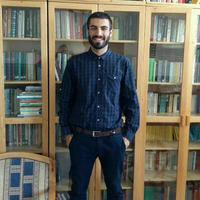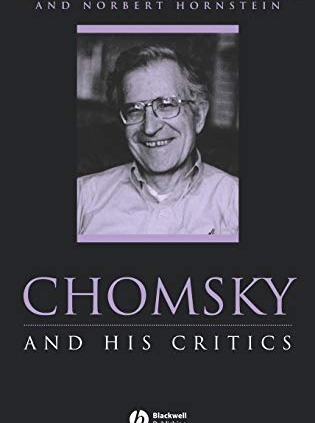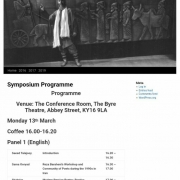A Critical Investigation to
The Philosophical Foundations and Implications of the Generative Linguistics
MA Thesis (Linguistics), Summer 2015, University of Tehran .
Supervisor:Ali Darzi PhD
Adviser: Gholam-Hosein Karimi-Doostan PhD
What I wrote as the MA dissertation, when I was a student of linguistics at Tehran University, was an amateur text with three parallel goals:
- Providing an introduction to the subjects.
- Criticizing Peter Ludlow’s work in Philosophy of Generative Linguistics (2011), especially in a chapter named “the role of normative guidance”.
- Scrutinizing the possible fusion between Chomsky’s Linguistics and Habermas’ comprehensive social thought.
Here is the abstract summarizing the last one.
Abstract
PDF Shahriar khosravi, linguistic disertation, Philosophy
The main attempt, here, is to investigate the philosophical foundations and implications of generative linguistics. This goal could be grasped firstly through understanding the literature on the subject, under the various disciplines of contemporary philosophy, philosophy of science, philosophy of mind and epistemology, philosophy of language, metaphysics, etc., and secondly through explaining implications and consequences that generative linguistics has for philosophy, especially regarding the philosophy of ethics and politics. The question is whether generative linguistics – as one of the most powerful forms of contemporary rationalism- could provide new possibilities for philosophy, ethics, and sociology in the so-called redemptive notion of the terms, and whether the philosophical concepts embedded in the theory, e.g. priorism, rationalism, universalism, etc., could be implemented in a more comprehensive systems of philosophy, ethics, sociology, etc., to give these systems a scientific and empirical support, and whether these concepts could be applied on matters of other disciplines without getting collapsed.
Here, Habermas’s theory of communicative action, as one of the most exclusive systems of contemporary philosophy and sociology- is called to examine the (in)consistency of the generative linguistics with such systems. The reason for choosing the theory of communicative action comes from the author’s belief that if generative linguistics wants to be something more than an ordinary science, it should be understood in a Kantian framework. Habermas’s theory of communicative action is one of the most common contemporary reconstructions of the ethical project of Immanuel Kant. Discussing the role of normative guidance, free-will-related concerns and some other worries about those systems, this paper shows pessimism about the success of the fusion. What I wrote as the MA dissertation, when I was a student of linguistics at Tehran University, was an amateur text with three parallel goals:
- Providing an introduction to the subjects.
- Criticizing Peter Ludlow’s work in Philosophy of Generative Linguistics (2011), especially in a chapter named “the role of normative guidance”.
- Scrutinizing the possible fusion between Chomsky’s Linguistics and Habermas’ comprehensive social thought.
Here is the abstract summarizing the last one.
Abstract
PDF Shahriar khosravi, linguistic disertation, Philosophy
The main attempt, here, is to investigate the philosophical foundations and implications of generative linguistics. This goal could be grasped firstly through understanding the literature on the subject, under the various disciplines of contemporary philosophy, philosophy of science, philosophy of mind and epistemology, philosophy of language, metaphysics, etc., and secondly through explaining implications and consequences that generative linguistics has for philosophy, especially regarding the philosophy of ethics and politics. The question is whether generative linguistics – as one of the most powerful forms of contemporary rationalism- could provide new possibilities for philosophy, ethics, and sociology in the so-called redemptive notion of the terms, and whether the philosophical concepts embedded in the theory, e.g. priorism, rationalism, universalism, etc., could be implemented in a more comprehensive systems of philosophy, ethics, sociology, etc., to give these systems a scientific and empirical support, and whether these concepts could be applied on matters of other disciplines without getting collapsed.
Here, the Habermas’s theory of communicative action, as one of the most exclusive systems of contemporary philosophy and sociology- is called to examine the (in)consistency of the generative linguistics with such systems. The reason of choosing the theory of communicative action comes from the author’s belief that if generative linguistics wants to be something more than an ordinary science, it should be understood in a Kantian framework. Habermas’s theory of communicative action is one of the most common contemporary reconstructions of ethical project of Immanuel Kant. Discussing the role of normative guidance, free-will-related concerns and some other worries pertaining to those systems, this paper shows pessimism about the success of the fusion.







